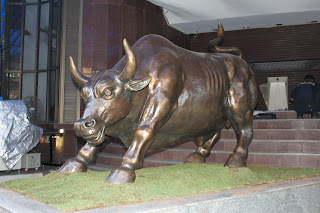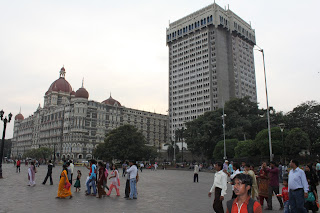Mindless chatter from the cognitive cauldron of an insomniac. The sea of my thoughts is greater than a thousand nautical miles (approximate figures). You are welcome to swim, dive or surf. But beware of the sharks and creatures of the deep. Happy fishing.
Monday, 27 April 2015
Dear Vogue
Saturday, 23 August 2014
A Pack Of Biscuits
On a lazy Saturday morning, I was travelling by the local trains on my way to tuitions, fervently studying last minute for an Economics test ( thank you procrastination). As the train halted at a station, I just lifted my head off my textbook for a moment. A beggar girl got in, carrying an infant in her lap. Dressed in rags and barefoot, she was trying to pacify the crying baby. Her face, though specked with grime and dirt, held a peculiar smile. She stretched her hand out to feel the raindrops on her palms, occasionally spraying the water on the baby's face. He stopped crying and giggled along with her. She then went on with her usual business, begging for rupee or two from the passengers who flatly refused. But she was different from other beggars I've seen, and trust me, living in Mumbai, I've seen many. As she clinked the few coins in her shapeless bowl, she didn't cry or plead. Her smile didn't fade. I didn't give her money, but gave her a half empty packet of biscuits instead. Her face lit up like the sky on Diwali. She thanked me twice, and got down at the next station, dancing and giggling as she walked.
I closed my textbook. I couldn't study anymore.
Saturday, 15 February 2014
Valar Morghulis - All Men Must Die
Wednesday, 20 November 2013
Mon Plaisir - A House Shrouded In Obscurity
I was told by locals that I wasn't permitted to go anywhere near it. There was a Kali Mandir outside with a board which said "vetala", which in Sanskrit means an evil spirit taking demonic possession of a corpse, according to folklore. Being the avid photographer that I am, I wanted to get closer to capture the mystique of the house. However, I had to abide by the locals. A certain community had built the temple and had performed several rituals to keep the spirit out. When I asked them about the story behind the house, they told me this : years ago, a family of four who lived in the house set themselves on fire under uncanny circumstances and died. Since then the house had been out of bounds and subject to several protective enchantments and rituals. There was another house named Mon Plaisir nearby, which was abandoned as well because it probably belonged to the same family or was considered just as ominous. It was the quintessential "Bhoot Bangla". I just dismissed it as an old wives tale. It was undeniably just a source of entertainment for the people in a small, uneventful town.
I don't believe in paranormal, unearthly and supernatural elements and occults. So instead of being haunted by the extramundane story I had just heard, I tried to find a rational reason for their death. The most probable and pragmatic answer that struck me was that the family may have been facing unresolvable financial problems, and so resorted to death. Isn't that possible? Why can't we think logically? Just because we can't find an answer, why blame it on supernatural elements?
The Best Meal of My Life
I was on my way back home after a memorable road trip with family when we stopped over for lunch in the middle of a road, at a shack selling sugarcane juice. Initially, I had reservations about having a rustic Maharashtrian meal. But once the modest steel plate was handed to me, I gorged on it. It was the most ambrosial, delectable meal my taste buds have ever experienced. The dish is traditionally eaten by farmers in Maharashtra and called pitla bhakari. It consists of a gravy made from gram flour and flat bread made from bajra (pearl millet). It was served with an appetising chutney made from garlic and chillies. We ended the meal with several glasses of sugarcane juice which trust me, is nothing short of elixir. It was one of the best moments of my life.
Turned out the farmer and his family had that everyday. So simple yet so delicious. Now coming to the philosophical side (sorry not sorry), why did those villagers look more content than us city dwellers? Is it that possessions are directly proportional to discontent? The more we own, the more dissatisfied we are. How could the farmer and his family be happy living in a house in the middle of a rural road, making their living from selling sugarcane juice and farming? Is it that possessions are directly proportional to discontent?





























